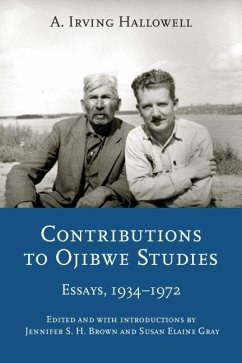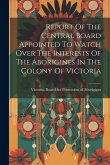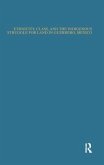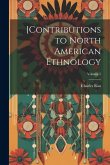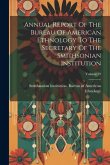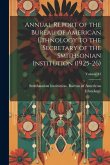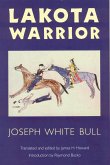A Irving HallowellEssays, 1934-1972
Contributions to Ojibwe Studies
Essays, 1934-1972
Herausgeber: Brown, Jennifer S H; Gray, Susan Elaine
A Irving HallowellEssays, 1934-1972
Contributions to Ojibwe Studies
Essays, 1934-1972
Herausgeber: Brown, Jennifer S H; Gray, Susan Elaine
- Broschiertes Buch
- Merkliste
- Auf die Merkliste
- Bewerten Bewerten
- Teilen
- Produkt teilen
- Produkterinnerung
- Produkterinnerung
A. Irving Hallowell (1892¿1974) was an American anthropologist who taught for most of his life at the University of Pennsylvania. Jennifer S. H. Brown holds a Canada Research Chair and is director of the Centre for Rupert¿s Land Studies at the University of Winnipeg. She has published widely on Northern Algonquian and fur trade history, and coedited, with Susan Elaine Gray, Memories, Myths, and Dreams of an Ojibwe Leader by William Berens. Susan Elaine Gray, an award-winning scholar of Northern Algonquian history and cultures, teaches Aboriginal history and is the research associate to the…mehr
Andere Kunden interessierten sich auch für
![Report Of The Central Board Appointed To Watch Over The Interests Of The Aborigines In The Colony Of Victoria Report Of The Central Board Appointed To Watch Over The Interests Of The Aborigines In The Colony Of Victoria]() Report Of The Central Board Appointed To Watch Over The Interests Of The Aborigines In The Colony Of Victoria15,99 €
Report Of The Central Board Appointed To Watch Over The Interests Of The Aborigines In The Colony Of Victoria15,99 €![Systems of Consanguinity and Affinity of the Human Family Systems of Consanguinity and Affinity of the Human Family]() Lewis Henry MorganSystems of Consanguinity and Affinity of the Human Family32,99 €
Lewis Henry MorganSystems of Consanguinity and Affinity of the Human Family32,99 €![Ethnicity, Class, and the Indigenous Struggle for Land in Guerrero, Mexico Ethnicity, Class, and the Indigenous Struggle for Land in Guerrero, Mexico]() Norberto ValdezEthnicity, Class, and the Indigenous Struggle for Land in Guerrero, Mexico65,99 €
Norberto ValdezEthnicity, Class, and the Indigenous Struggle for Land in Guerrero, Mexico65,99 €![[Contributions to North American Ethnology; Volume 5 [Contributions to North American Ethnology; Volume 5]() Charles Rau[Contributions to North American Ethnology; Volume 527,99 €
Charles Rau[Contributions to North American Ethnology; Volume 527,99 €![Annual Report Of The Bureau Of American Ethnology To The Secretary Of The Smithsonian Institution; Volume 19 Annual Report Of The Bureau Of American Ethnology To The Secretary Of The Smithsonian Institution; Volume 19]() Annual Report Of The Bureau Of American Ethnology To The Secretary Of The Smithsonian Institution; Volume 1934,99 €
Annual Report Of The Bureau Of American Ethnology To The Secretary Of The Smithsonian Institution; Volume 1934,99 €![Annual Report of the Bureau of American Ethnology to the Secretary of the Smithsonian Institution (1925-26); Volume 43 Annual Report of the Bureau of American Ethnology to the Secretary of the Smithsonian Institution (1925-26); Volume 43]() Annual Report of the Bureau of American Ethnology to the Secretary of the Smithsonian Institution (1925-26); Volume 4338,99 €
Annual Report of the Bureau of American Ethnology to the Secretary of the Smithsonian Institution (1925-26); Volume 4338,99 €![Lakota Warrior Lakota Warrior]() Joseph White BullLakota Warrior16,99 €
Joseph White BullLakota Warrior16,99 €-
-
-
A. Irving Hallowell (1892¿1974) was an American anthropologist who taught for most of his life at the University of Pennsylvania. Jennifer S. H. Brown holds a Canada Research Chair and is director of the Centre for Rupert¿s Land Studies at the University of Winnipeg. She has published widely on Northern Algonquian and fur trade history, and coedited, with Susan Elaine Gray, Memories, Myths, and Dreams of an Ojibwe Leader by William Berens. Susan Elaine Gray, an award-winning scholar of Northern Algonquian history and cultures, teaches Aboriginal history and is the research associate to the Canada Research Chair in Aboriginal Peoples and Histories at the University of Winnipeg. She is the coeditor of The Spirit Lives in the Mind: Omushkego Stories, Lives, and Dreams.
Produktdetails
- Produktdetails
- Verlag: Univ of Nebraska Press
- Seitenzahl: 664
- Erscheinungstermin: 1. August 2010
- Englisch
- Abmessung: 226mm x 152mm x 38mm
- Gewicht: 907g
- ISBN-13: 9780803223912
- ISBN-10: 0803223919
- Artikelnr.: 28130976
- Herstellerkennzeichnung
- Libri GmbH
- Europaallee 1
- 36244 Bad Hersfeld
- gpsr@libri.de
- Verlag: Univ of Nebraska Press
- Seitenzahl: 664
- Erscheinungstermin: 1. August 2010
- Englisch
- Abmessung: 226mm x 152mm x 38mm
- Gewicht: 907g
- ISBN-13: 9780803223912
- ISBN-10: 0803223919
- Artikelnr.: 28130976
- Herstellerkennzeichnung
- Libri GmbH
- Europaallee 1
- 36244 Bad Hersfeld
- gpsr@libri.de
A. Irving Hallowell (1892-1974) was an American anthropologist who taught for most of his life at the University of Pennsylvania. Jennifer S. H. Brown holds a Canada Research Chair and is director of the Centre for Rupert's Land Studies at the University of Winnipeg. She has published widely on Northern Algonquian and fur trade history, and coedited, with Susan Elaine Gray, Memories, Myths, and Dreams of an Ojibwe Leader by William Berens. Susan Elaine Gray, an award-winning scholar of Northern Algonquian history and cultures, teaches Aboriginal history and is the research associate to the Canada Research Chair in Aboriginal Peoples and Histories at the University of Winnipeg. She is the coeditor of The Spirit Lives in the Mind: Omushkego Stories, Lives, and Dreams.
List of Illustrations
Series Editors' Introduction
Editors' Preface
Acknowledgments
Editorial History and Procedures
Prologue: On Being an Anthropologist
Part I. Approaching Ojibwe Culture and Material Life
Introduction
1. The Northern Ojibwa
2. Notes on the Northern Range of Zizania [wild rice] in Manitoba
3. Rocks and Stones
4. Notes on the Material Culture of the Island Lake Saulteaux
Part II. Marriage and Kinship
Introduction
5. Cross-Cousin Marriage in the Lake Winnipeg Area
6. The Incidence, Character, and Decline of Polygyny among the Lake
Winnipeg Cree and Saulteaux
Part III. The Patterning of Experience in Time and Space
Introduction
7. Temporal Orientation in Western Civilization and in a Preliterate
Society
8. Some Psychological Aspects of Measurement among the Saulteaux
9. The Size of Algonkian Hunting Territories: A Function of Ecological
Adjustment
10. Cultural Factors in Spatial Orientation
Part IV. Stress and Anxiety, Fear and Aggression
Introduction
11. Psychic Stresses and Culture Patterns
12. Fear and Anxiety as Cultural and Individual Variables in a Primitive
Society
13. Freudian Symbolism in the Dream of a Saulteaux Indian
14. Shabwán: A Dissocial Indian Girl
15. Aggression in Saulteaux Society
16. The Social Function of Anxiety in a Primitive Society
Part V. In Sickness and in Health
Introduction
17. Sin, Sex, and Sickness in Saulteaux Belief
18. Psychosexual Adjustment, Personality, and the Good Life in a
Nonliterate Culture
19. Values, Acculturation, and Mental Health
Part VI. Religion, Dreams, and the Spiritual Life
Introduction
20. Some Empirical Aspects of Northern Saulteaux Religion
21. The Passing of the Midewiwin in the Lake Winnipeg Region
22. Spirits of the Dead in Saulteaux Life and Thought
23. The Role of Dreams in Ojibwa Culture
Part VI. Personality, the Self, and World View
Introduction
24. The Rorschach Method as an Aid in the Study of Personalities in
Primitive Societies
25. Some Psychological Characteristics of the Northeastern Indians
26. The Ojibwa Self and its Behavioral Environment
27. Ojibwa Ontology, Behavior, and World View
Glossary of Ojibwe Words and Names Used by Hallowell
Source Acknowledgements
Index
Series Editors' Introduction
Editors' Preface
Acknowledgments
Editorial History and Procedures
Prologue: On Being an Anthropologist
Part I. Approaching Ojibwe Culture and Material Life
Introduction
1. The Northern Ojibwa
2. Notes on the Northern Range of Zizania [wild rice] in Manitoba
3. Rocks and Stones
4. Notes on the Material Culture of the Island Lake Saulteaux
Part II. Marriage and Kinship
Introduction
5. Cross-Cousin Marriage in the Lake Winnipeg Area
6. The Incidence, Character, and Decline of Polygyny among the Lake
Winnipeg Cree and Saulteaux
Part III. The Patterning of Experience in Time and Space
Introduction
7. Temporal Orientation in Western Civilization and in a Preliterate
Society
8. Some Psychological Aspects of Measurement among the Saulteaux
9. The Size of Algonkian Hunting Territories: A Function of Ecological
Adjustment
10. Cultural Factors in Spatial Orientation
Part IV. Stress and Anxiety, Fear and Aggression
Introduction
11. Psychic Stresses and Culture Patterns
12. Fear and Anxiety as Cultural and Individual Variables in a Primitive
Society
13. Freudian Symbolism in the Dream of a Saulteaux Indian
14. Shabwán: A Dissocial Indian Girl
15. Aggression in Saulteaux Society
16. The Social Function of Anxiety in a Primitive Society
Part V. In Sickness and in Health
Introduction
17. Sin, Sex, and Sickness in Saulteaux Belief
18. Psychosexual Adjustment, Personality, and the Good Life in a
Nonliterate Culture
19. Values, Acculturation, and Mental Health
Part VI. Religion, Dreams, and the Spiritual Life
Introduction
20. Some Empirical Aspects of Northern Saulteaux Religion
21. The Passing of the Midewiwin in the Lake Winnipeg Region
22. Spirits of the Dead in Saulteaux Life and Thought
23. The Role of Dreams in Ojibwa Culture
Part VI. Personality, the Self, and World View
Introduction
24. The Rorschach Method as an Aid in the Study of Personalities in
Primitive Societies
25. Some Psychological Characteristics of the Northeastern Indians
26. The Ojibwa Self and its Behavioral Environment
27. Ojibwa Ontology, Behavior, and World View
Glossary of Ojibwe Words and Names Used by Hallowell
Source Acknowledgements
Index
List of Illustrations
Series Editors' Introduction
Editors' Preface
Acknowledgments
Editorial History and Procedures
Prologue: On Being an Anthropologist
Part I. Approaching Ojibwe Culture and Material Life
Introduction
1. The Northern Ojibwa
2. Notes on the Northern Range of Zizania [wild rice] in Manitoba
3. Rocks and Stones
4. Notes on the Material Culture of the Island Lake Saulteaux
Part II. Marriage and Kinship
Introduction
5. Cross-Cousin Marriage in the Lake Winnipeg Area
6. The Incidence, Character, and Decline of Polygyny among the Lake
Winnipeg Cree and Saulteaux
Part III. The Patterning of Experience in Time and Space
Introduction
7. Temporal Orientation in Western Civilization and in a Preliterate
Society
8. Some Psychological Aspects of Measurement among the Saulteaux
9. The Size of Algonkian Hunting Territories: A Function of Ecological
Adjustment
10. Cultural Factors in Spatial Orientation
Part IV. Stress and Anxiety, Fear and Aggression
Introduction
11. Psychic Stresses and Culture Patterns
12. Fear and Anxiety as Cultural and Individual Variables in a Primitive
Society
13. Freudian Symbolism in the Dream of a Saulteaux Indian
14. Shabwán: A Dissocial Indian Girl
15. Aggression in Saulteaux Society
16. The Social Function of Anxiety in a Primitive Society
Part V. In Sickness and in Health
Introduction
17. Sin, Sex, and Sickness in Saulteaux Belief
18. Psychosexual Adjustment, Personality, and the Good Life in a
Nonliterate Culture
19. Values, Acculturation, and Mental Health
Part VI. Religion, Dreams, and the Spiritual Life
Introduction
20. Some Empirical Aspects of Northern Saulteaux Religion
21. The Passing of the Midewiwin in the Lake Winnipeg Region
22. Spirits of the Dead in Saulteaux Life and Thought
23. The Role of Dreams in Ojibwa Culture
Part VI. Personality, the Self, and World View
Introduction
24. The Rorschach Method as an Aid in the Study of Personalities in
Primitive Societies
25. Some Psychological Characteristics of the Northeastern Indians
26. The Ojibwa Self and its Behavioral Environment
27. Ojibwa Ontology, Behavior, and World View
Glossary of Ojibwe Words and Names Used by Hallowell
Source Acknowledgements
Index
Series Editors' Introduction
Editors' Preface
Acknowledgments
Editorial History and Procedures
Prologue: On Being an Anthropologist
Part I. Approaching Ojibwe Culture and Material Life
Introduction
1. The Northern Ojibwa
2. Notes on the Northern Range of Zizania [wild rice] in Manitoba
3. Rocks and Stones
4. Notes on the Material Culture of the Island Lake Saulteaux
Part II. Marriage and Kinship
Introduction
5. Cross-Cousin Marriage in the Lake Winnipeg Area
6. The Incidence, Character, and Decline of Polygyny among the Lake
Winnipeg Cree and Saulteaux
Part III. The Patterning of Experience in Time and Space
Introduction
7. Temporal Orientation in Western Civilization and in a Preliterate
Society
8. Some Psychological Aspects of Measurement among the Saulteaux
9. The Size of Algonkian Hunting Territories: A Function of Ecological
Adjustment
10. Cultural Factors in Spatial Orientation
Part IV. Stress and Anxiety, Fear and Aggression
Introduction
11. Psychic Stresses and Culture Patterns
12. Fear and Anxiety as Cultural and Individual Variables in a Primitive
Society
13. Freudian Symbolism in the Dream of a Saulteaux Indian
14. Shabwán: A Dissocial Indian Girl
15. Aggression in Saulteaux Society
16. The Social Function of Anxiety in a Primitive Society
Part V. In Sickness and in Health
Introduction
17. Sin, Sex, and Sickness in Saulteaux Belief
18. Psychosexual Adjustment, Personality, and the Good Life in a
Nonliterate Culture
19. Values, Acculturation, and Mental Health
Part VI. Religion, Dreams, and the Spiritual Life
Introduction
20. Some Empirical Aspects of Northern Saulteaux Religion
21. The Passing of the Midewiwin in the Lake Winnipeg Region
22. Spirits of the Dead in Saulteaux Life and Thought
23. The Role of Dreams in Ojibwa Culture
Part VI. Personality, the Self, and World View
Introduction
24. The Rorschach Method as an Aid in the Study of Personalities in
Primitive Societies
25. Some Psychological Characteristics of the Northeastern Indians
26. The Ojibwa Self and its Behavioral Environment
27. Ojibwa Ontology, Behavior, and World View
Glossary of Ojibwe Words and Names Used by Hallowell
Source Acknowledgements
Index

